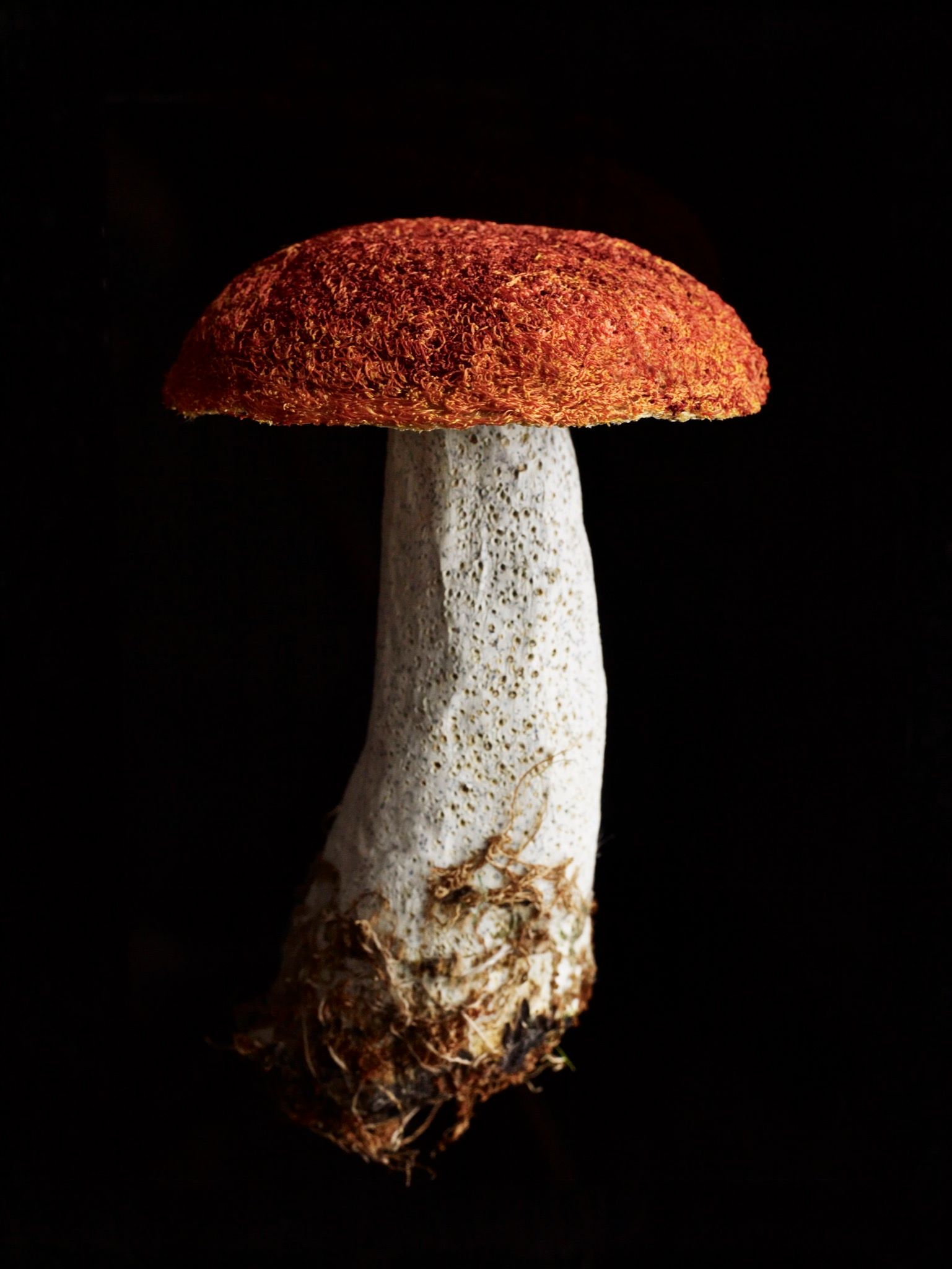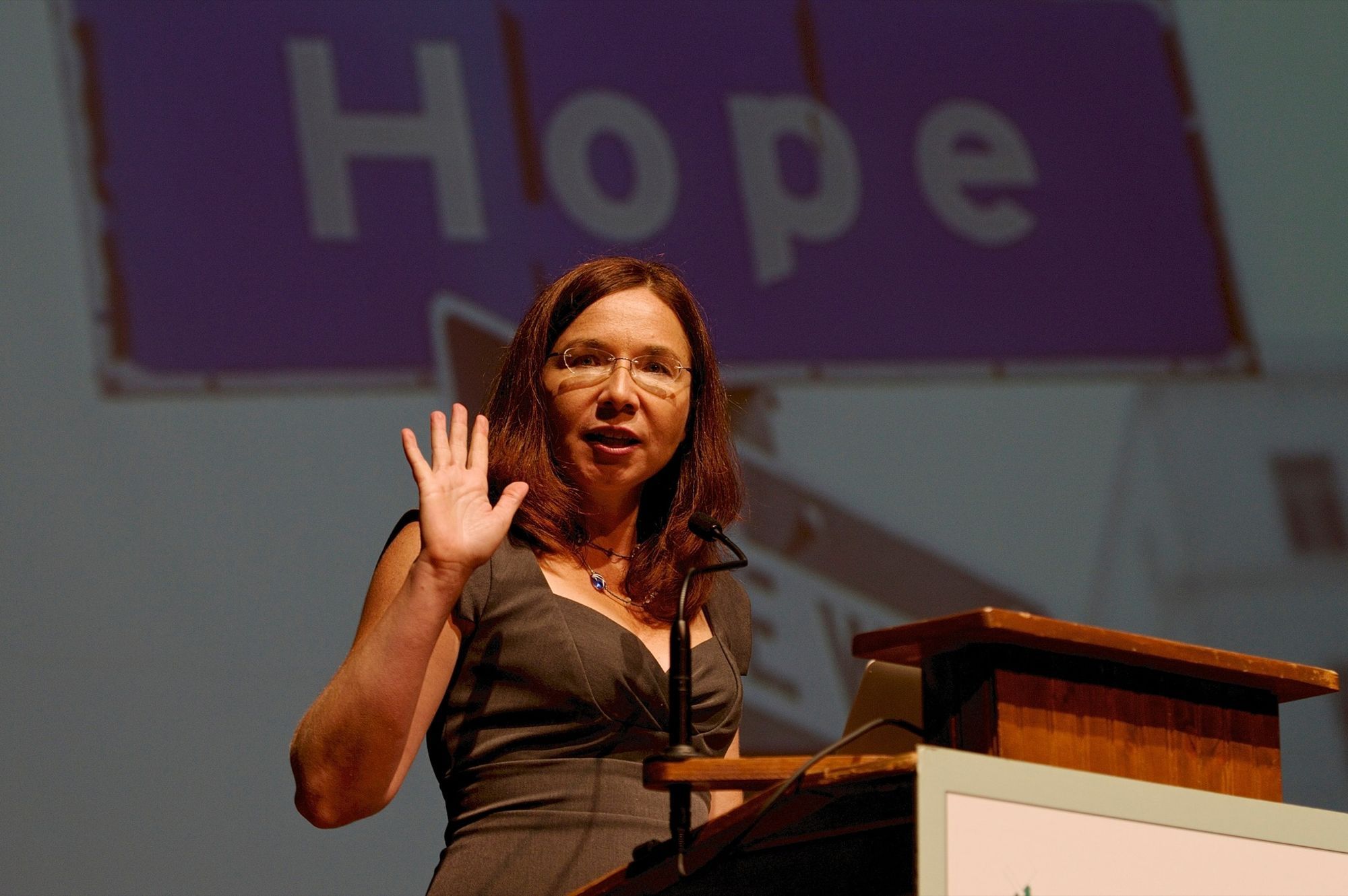Environmentalist ALEXANDRA COUSTEAU: “Halfway through this century, it may be game over.”
|CYRILL GUTSCH
Over the next fifty years, the oceanic landscape is set to face radical and cataclysmic changes. 25 per cent of saltwater life will soon be extinct – including the smoothback angel shark, the Mediterranean monk seal, and stony coral – making us the first generation to not only witness the disappearance of select species, but of entire ecosystems.
The environmentalist, filmmaker, and founder of the NGO Blue Legacy, ALEXANDRA COUSTEAU refuses to accept this outcome. Continuing the work of her grandfather, legendary oceanographer and inventor of the Aqua-Lung, Jacques-Yves Cousteau, she strives to prevent the impending realities of climate change. Cousteau’s approach to water conservation begins on the home front, where she empowers communities to take grassroots action. Blue Legacy’s next project, Source, seeks to further this education by condensing big data into accessible user interfaces – developing apps so that checking the pH of your local river is as easy as checking the weather forecast. Marrying business, technology, and specialized marine knowledge, Cousteau is working to redefine the dialogue surrounding climate change and create a unified effort against imminent global catastrophe. Founder of Parley for the Oceans, fellow environmental activist CYRILL GUTSCH talks to Cousteau about the influences that have shaped her tireless aquatic eco-crusade.
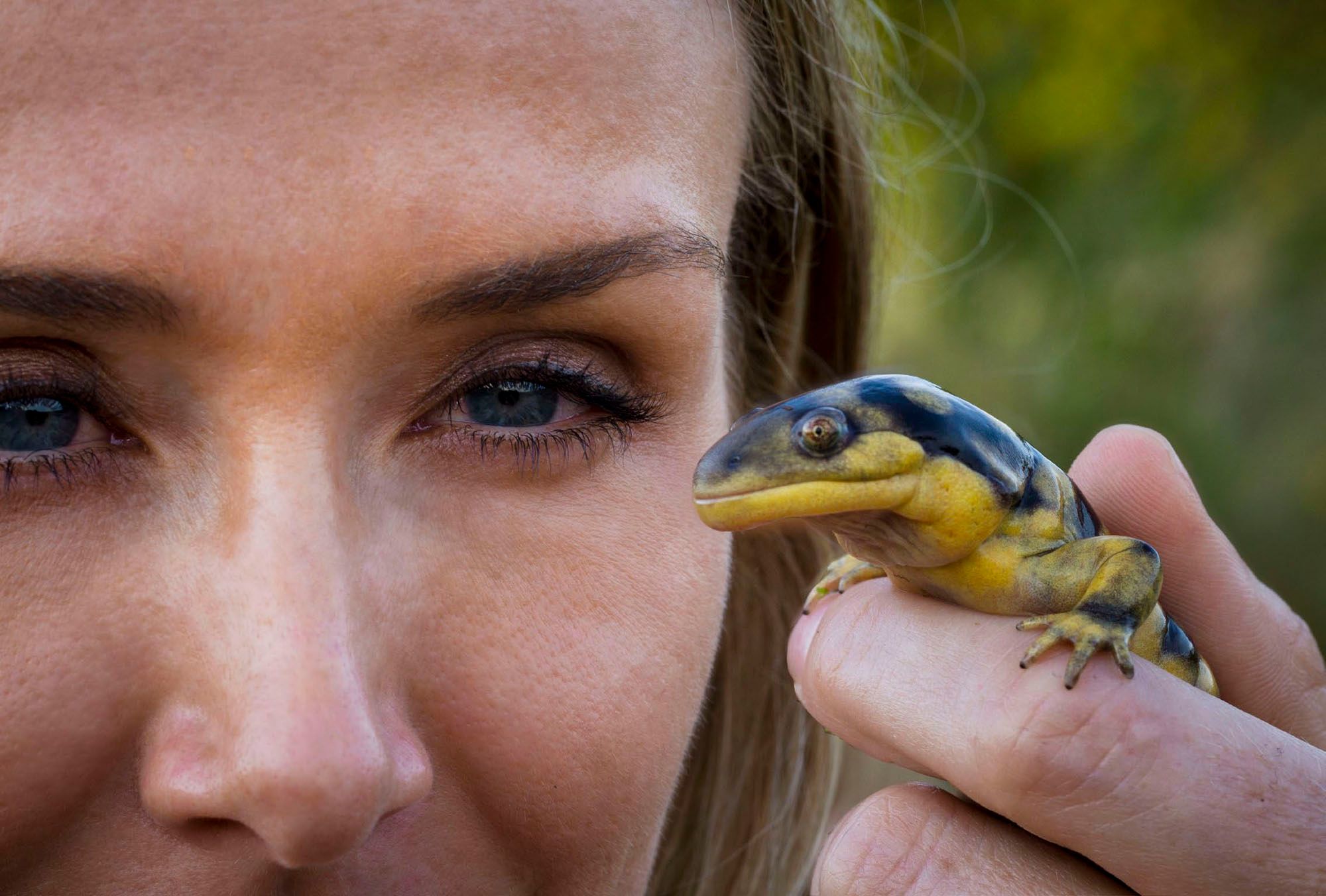
CYRILL GUTSCH: You inherited your passion for diving from your grandfather.
ALEXANDRA COUSTEAU: I went on my first expedition when I was five months old, and I grew up in that environment – adventure, travel, being in the field, being with the crew, and all of that. And when my father died – when I was about four years old – my grandfather picked it up when he could. When I was seven, he taught me to scuba dive, which was a promise that my father had made me. We were in the South of France – I spent a lot of time there as a child – and the day we went out we were on a small boat. My grandfather had fashioned dive equipment for me that was child-sized. It was just a mask, a regulator, little fins, and small tanks on red rubber suspenders. I had learned to swim before I could walk, and as a very young child I was always looking in the water – and under rocks and tree trunks – trying to find creatures to put in my bucket for observation. So I was quite excited to go diving for the first time, but I was also a little bit nervous.
I remember looking down over the side of the boat into the dark, deep water. At seven, I didn’t really understand how the regulator would allow me to breath underwater.
You were scared?
I felt very comfortable in the water, but I was nervous about taking that first breath. I didn’t want it to go into my mouth and lungs. I took one first, tentative breath just under the surface, with my face half out of the water so I could abort if I had to. And it worked! Then I took another breath, and it worked again, and I was like, “Wow, this is great!” Then I started swimming down.
How would you describe the world that you discovered? What’s the difference between being under the ocean as opposed to above it?
I think a huge part of it was the sensation of weightlessness. I always loved the water, so being able to stay underwater felt amazing. I was able to see all these things in a three-dimensional environment – how the fish were swimming all around me, under me, over me, beside me. For a seven-year-old, it was an entirely new playground of opportunity and potential.
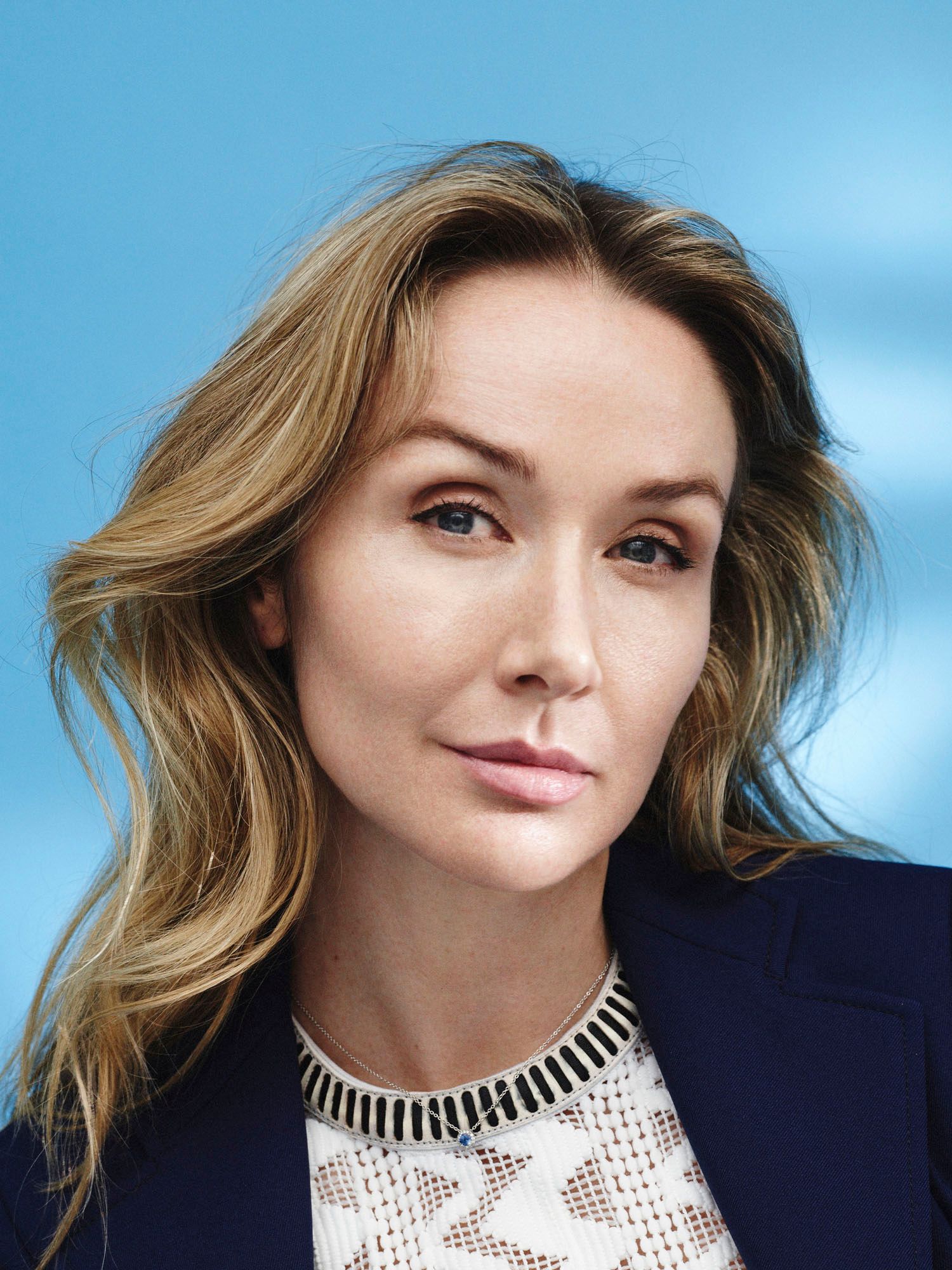
And you’ve kept diving, no?
Yes, I’m a dive master now. But even if I have an opportunity to dive, I don’t always take it. I know too much. I know what disease looks like on coral. I know when the biodiversity is not there. I know what sick and undersized fish look like. Diving a dead reef makes me feel sad, so I usually don’t do it.
Are there still places on this planet that have remained as they were when you started diving?
There are several places. A few years ago, I was diving in Malaysia for a week, and it was just amazing. The coral was so abundant. They were like rolling meadows, with all these fish like butterflies hovering above them. There were huge schools of barracuda that would swirl around you like a tornado. I saw a pygmy cuttlefish that was the size of my pinky fingernail. I encountered it on a night dive, purely by accident. He just happened to swim in front of my face. And when I went to take a closer look, he spat tiny droplets of ink at me as he tried to get away.
He was trying to fight you!
It was magical. I enjoy those dives very much, because I can appreciate the diversity and abundance of what life on a reef should be.
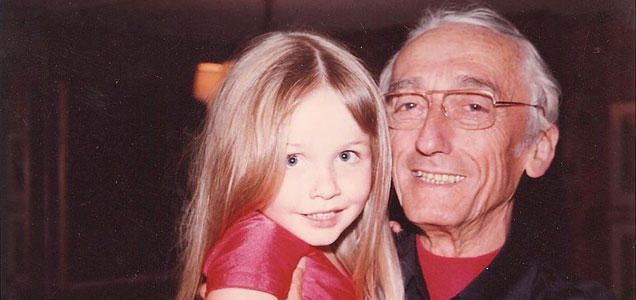
Well, it’s clear that we’ve already lost a lot. 90 percent of the big fish are gone. Half of our coral reefs are gone. There’s a lot of damage and degradation. There are dead zones. At this time, we need to remember that the oceans are a life support system. Without them, we won’t survive. We need to take drastic action to protect them, but it’s not going to work if we ask everybody to become vegan and sacrifice. People just aren’t prepared to do that. I think we need hugely ambitious projects that can engage multiple different groups to sit around the same table together. For example, Oceana is the largest international organization focused solely on ocean conservation. Their project called “Save the Oceans, Feed the World” has basically taken a look at the fisheries issue and said, “We have a huge problem. Our fisheries are in decline all over the world. How can we prevent overfishing and restore our abundant oceans?” People depend on this food. An abundant ocean could feed a billion people a year. Right now, it’s feeding less than 500 million. It turns out that 90 percent of all fisheries are controlled by two dozen nations, so if you can affect fisheries policies in those nations, you can decrease overfishing in the world and bring back that abundance. You can also provide sustainable food security for nations around the world. It’s an exciting project for me, because it’s extraordinarily ambitious. We have an extremely short timeframe, because halfway through this century, it may be game over.
Aside from overfishing, what are the other causes that we need to act on?
Our oceans start in our backyards – in our lakes, in our rivers, and in our streams. All too often, we separate fresh water from salt water. We manage them separately. We think of them separately. We study them separately. And yet, they’re all connected. I saw this very vividly with the Colorado River, when we were filming the death of the river in what used to be a wetland the size of Rhode Island. Now, it is a cracked, scorched-earth desert. The Sea of Cortez, which my grandfather once called “the aquarium of the world,” has been devastated by the lack of fresh water coming in from the Colorado River. We must become aware that there is interconnectivity between our rivers and oceans. The Gulf of Mexico has a dead zone the size of New Jersey every summer, and that comes from the Mississippi River and the agriculture along that river basin. Recently, you may have heard that the Colorado River reconnected with the Sea of Cortez, and that was the fruit of 20 years of passionate advocacy on both sides of the border. If one percent of the river reconnected with the Sea of Cortez, you could bring back an important enough corridor that it would impact all the way down to the base, and the fishermen who depend on those fisheries. So I think we’re starting to have a more holistic understanding of the interconnectivity of our water resources.
In a way, environmentalism is the world’s fastest growing movement. Is that how you see it?
Absolutely. Paul Hawken wrote a book called Blessed Unrest, where he talked about how the environmental movement is the largest movement in the history of the world, and yet it’s largely unrecognized because it doesn’t have a charismatic leader, or an ideal that everybody gets behind. Rather than a top-down movement, it’s a bottom-up movement, where people take action locally because they feel grief at the loss of a natural resource that defines their community, their culture, their history, and their hopes for the future. It’s undocumented and it’s hard to quantify, and yet everywhere you go, it’s there.
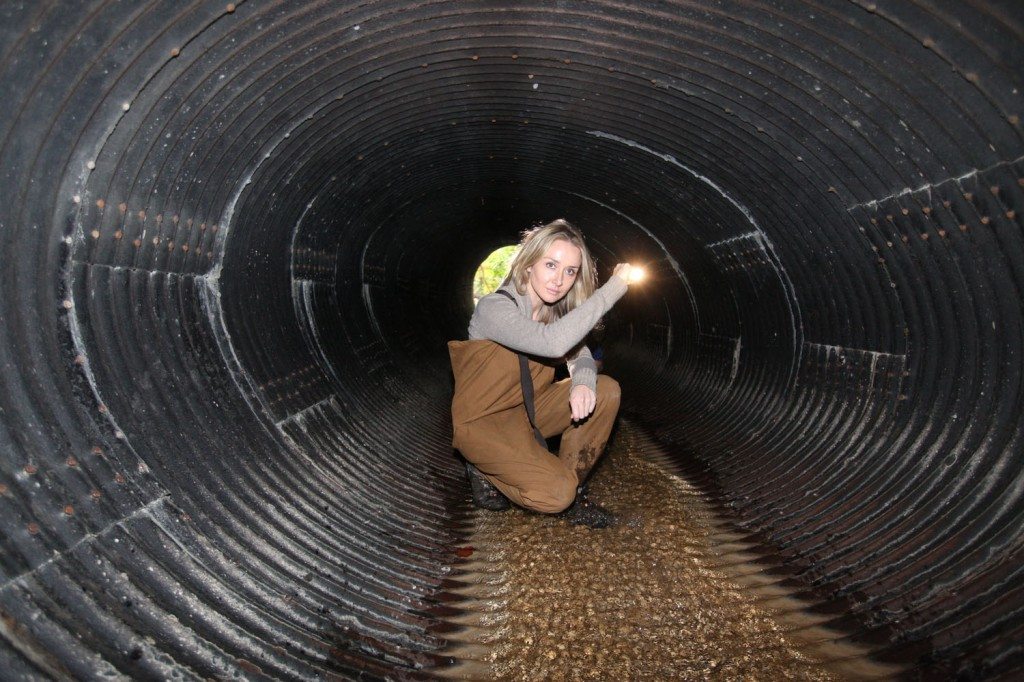
That’s what I’m telling every partner I work with. We’re trying to convince companies to change the way they’re doing business, and to deliver alternatives for people. I feel that everybody’s ready, but the structure isn’t there, and the big message isn’t out. This is up to the companies, to the industry – more than the government, even. I feel that the change has to come from the economy, and, in order to do so, the economy has to find a way to make it more lucrative to actually protect the planet and the oceans than to destroy them. That’s the whole issue of Parley. You’ve given a lot of talks to companies. What do you envision as the role of corporations in this movement?
I believe that they have a very important role. Corporations have grown, and they are wealthier and more powerful than ever. And yet, a lot of them are coming around, especially American corporations. There’s a lot of hope in America. Congress is dysfunctional, there’s a lot of stupid stuff happening, but they can really take leadership in the conversation when they want to. Even Wal-Mart can shift the market for sustainable seafood when they decide to carry only sustainable seafood, or organic vegetables, or when they decide to only work with companies that have recycling programs for their electronics. They shift the economy for that. Coca-Cola is another example. They were talking about water neutrality and plastic neutrality years ago, when people were only starting to talk about carbon neutrality. They built this huge recycling facility somewhere in the south of the United States, and if they haven’t already accomplished it, they’re close to recycling as much plastic as they produce every year. So it’s not perfect, but it’s becoming something where companies understand that they can benefit. And not just their image, but their bottom line as well. The CEO of GE, Jeffrey Immelt, gave a talk years ago at an event for the World Resources Institute, and he said, “Green is green.” We make money by being more sustainable, and I think a lot of companies are coming to that conclusion.
Do you feel as though there is a way to get all these different entities to collaborate with environmentalist organizations?
There’s always room for improvement, but environmentalists have demonized corporations for too long. For the first time, corporations are coming around, and they’re willing to sit at the table and talk about it. We need to sit at the table with them and find win-win solutions so we can move this along. Battling will only delay the outcome we seek.
What is the role of the creative industries – designers, actors, and other creative innovators?
The creative class are the storytellers. They are the ones who can motivate people to take action, because they know how to tell stories that will inspire people. We can’t do this with data on a spreadsheet. We have to do it with stories. I think technology allows us to do that. Social media and the Internet have changed the way we tell stories. I hope that we will move away from this obsession with selfies, and move towards something significant.
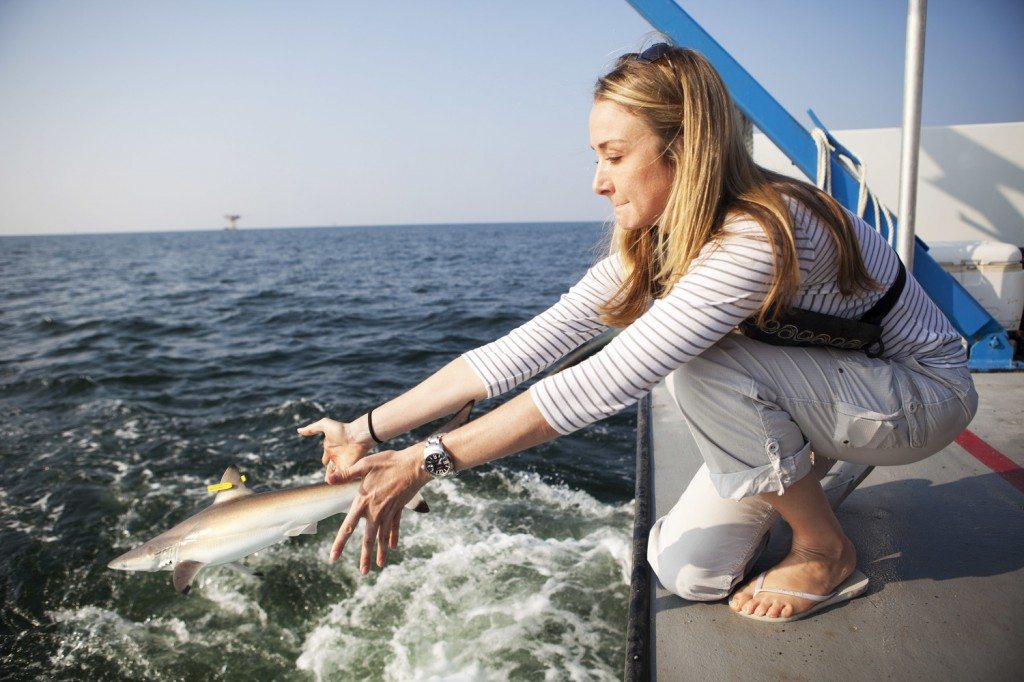
Right now, people are simply flirting with their mirror image.
I have a three year old daughter, and I constantly worry about how I will teach her how to use social media in a meaningful way. But I hope that, as this technology matures, it will become a marketplace for ideas – for new perspectives that will change our world.
Can we save the world with a new culture of communication? How do you see this happening?
We need to give people access to information in a way that they’ve never had it before. If you look at how we visualize weather data and financial data, it’s so easy for people to know everything with an app on their phone. We need to have that same simplicity of information for water data. Something we’re working on at Blue Legacy is how can we give people access to real time information about their water resources in a way that makes it easy for them. That’s the next big initiative that we’re launching in a few months, called Source. It’s not about storytelling, but rather about how we can visualize complex data that everyone needs to be aware of. People don’t know where their water comes from. They don’t know what’s in their water, and they wouldn’t know what to do about it, even if they did know. People don’t take action, because they just assume that water comes from the tap – and if it comes out of the tap, then it must be fine. It’s not.
People don’t care, because they don’t feel as though they need to.
If we can harness big data technology – and the visualizations of it – we can really change how people understand the rivers that they jog next to, the creeks that they sweep stuff off the driveway into, and the oceans that they like to admire when they’re at the beach. We can’t just move forward with anecdotal evidence.
Most people on this planet live far away from the beauty of the ocean. Many can’t even afford to be there, let alone dive, or become explorers. Part of your job involves bringing this understanding – and this beauty – to the masses.
My grandfather lived in an age of exploration that was all about discovering new places. It was at a time when Sir Edmund Hilary climbed Mt. Everest for the first time. Ernest Shackleton was exploring Antarctica. They were pushing the boundaries of the known universe, and doing things that had never been done before. But my grandfather was different from the others, in that he was an inventor. He invented the technology that made it possible for everyone to do what he did. You can go and do exactly what my grandfather did. And now technology has advanced with communication. You can put waterproof housing on your iPhone, produce a documentary from your phone, and beam it out to the whole world. The act of exploration has been democratized, so much so that, today, it isn’t about being the first to go somewhere. The challenge is really about bringing home a new perspective on how we understand the value of a place, and to find solutions to protect it, conserve it, and/or sustainably exploit it. When my grandfather got started, it was very rare for somebody to have the opportunity to do that. It was exclusive, but now it’s open to everyone. That’s tremendously exciting. Because, as my grandfather said, “People protect what they love, and they love what they know.”
How would you translate that sentence: People protect what the love, and they love what they know?
In our day and age, a lot of people will send money to dig a well in Africa, or save a whale, or whatever, and that’s good. But I think there’s something to be said about protecting something in your own backyard – the places where you grew up as a child, where you went fishing with your father, where you had memories that you want to pass on to your own children. I think that was most inspiring for me when I was on my 2010 expedition, because it was really Americans that taught me this. I was spending time in communities with people who get together around their kitchen table to start a group to protect a creek, or a lake.
As an explorer, your grandfather was one of the first people who saw the full beauty of the ocean. And during his own lifespan, he began witnessing its destruction.
My grandfather didn’t start as an environmentalist, he became an environmentalist. If you were to go back and watch The Silent World (1956), you would be shocked. In the post-war world, they didn’t know anything. They were the first to go out there, and their reactions were immature, uninformed, and almost fearful. I can’t watch it. At one point during The Silent World, the ship runs over a baby whale, because they were following it too closely. All the blood brings sharks, and the crew is killing the sharks, because sharks are “evil.” It took the world by storm in 1956. Today, it would be horrifying to us, partially because of the work my grandfather did. He observed changes in the ocean and became an environmentalist as a result. I think we have to honor the people who were the first and forgive their mistakes, because they bring us to where we are.
A lot of people became strong activists after they realize what they have done. They explore and they often don’t know the consequences.
Look at what exploration used to be. Christopher Columbus was “exploring,” and it was a time of genocide and germ warfare. That was The Age of Exploration. Today, exploration is about experiencing, enjoying, and sharing. It’s not about conquering and killing. We’ve come a long way. We need to celebrate that.
Credits
- Interview: CYRILL GUTSCH
